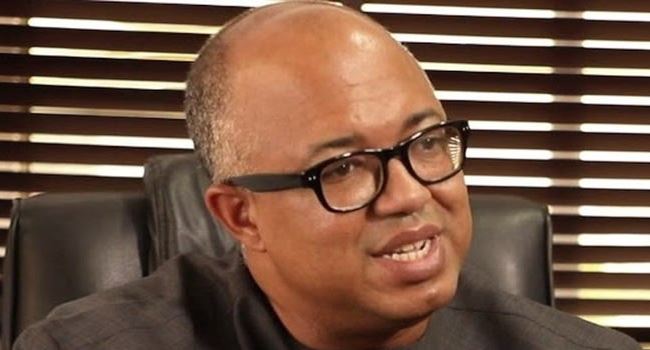News
COVID-19: Sample collection, not testing is our problem —NCDC

The Director General of the Nigeria Centre for Disease Control (NCDC), Dr. Chike Ihekweazu, on Tuesday said the major challenge the nation is facing at the moment with the COVID-19 pandemic is that of sample collection and not testing.
According to Ihekweazu, Nigeria before now had capacity to test 1,500 but is scaling up to 4,000, with Lagos having 2,000, FCT 1,000 and the rest of the country 1,000.
The NCDC boss said this during a briefing organised on Tuesday by the Presidential Task Force on COVID-19 in Abuja.
He stated: “We have achieved this largely by leveraging on the existing molecular laboratory capacity within our network across the country. We now have the capacity to test 1,500 people per day.
“The challenge right now is not laboratories’ testing capacity, but how active our public health workforce is in collecting samples from identified suspected cases and sending them to the laboratories for testing.”
“We have sufficient testing capacity of 1,500 per day, but we are not close to exhausting it every day. From today, we have to push harder. Our target following the President speech is to get to testing 2,000 per day in Lagos, 1,000 in Abuja and 1,000 for the rest of the country. This is the target we have agreed.”
He further disclosed that part of the innovation being developed by the PTF was to track all test kits sent to states to ensure they were effectively utilised.
Read also: Buhari, NASS leadership meet on COVID-19, others
According to him, he visited Lagos during the Easter period where a new strategy was developed, stressing that the new strategy must be replicated across the country.
Explaining the processes involved in testing of samples, the Ihekweazu said it took at least 12 hours for a sample test to be completed, adding that a positive sample could take longer period.
“We are establishing clinics in Lagos where people can go and have their swabs collected through a special arrangement. They (the swabs) have to be distributed to three laboratories in Lagos and in the following morning, have to be sorted. It is a complex process, but we have managed to improve on it.
“Outside Lagos and Abuja, there are places where we have laboratories and where we have extra-complications of transportation to the laboratories. There is a courier that does that on our behalf. You cannot just collect a sample, you have to save it in a medium that saves its viability until it gets to the laboratories.”
According to him, ambulances will be sent to individuals, who test positive for the virus, to convey them to treatment centres.
Speaking on the rationale behind the lockdown extension announced by President Muhammadu Buhari, Ihekweazu said it was meant to ensure that the country was ready for reopening of its economic activities without fear of further spread of the virus.
He said: “The goal of the lockdown is not to stop the outbreak but what we are trying to achieve is to work efficiently within the context of reopening economy. Our challenge is to show that we can reopen (the economy) slowly and maintain public health response within a slowly calibrated reopening economy and we have two weeks to demonstrate this across the country.”
Join the conversation
Support Ripples Nigeria, hold up solutions journalism
Balanced, fearless journalism driven by data comes at huge financial costs.
As a media platform, we hold leadership accountable and will not trade the right to press freedom and free speech for a piece of cake.
If you like what we do, and are ready to uphold solutions journalism, kindly donate to the Ripples Nigeria cause.
Your support would help to ensure that citizens and institutions continue to have free access to credible and reliable information for societal development.
























